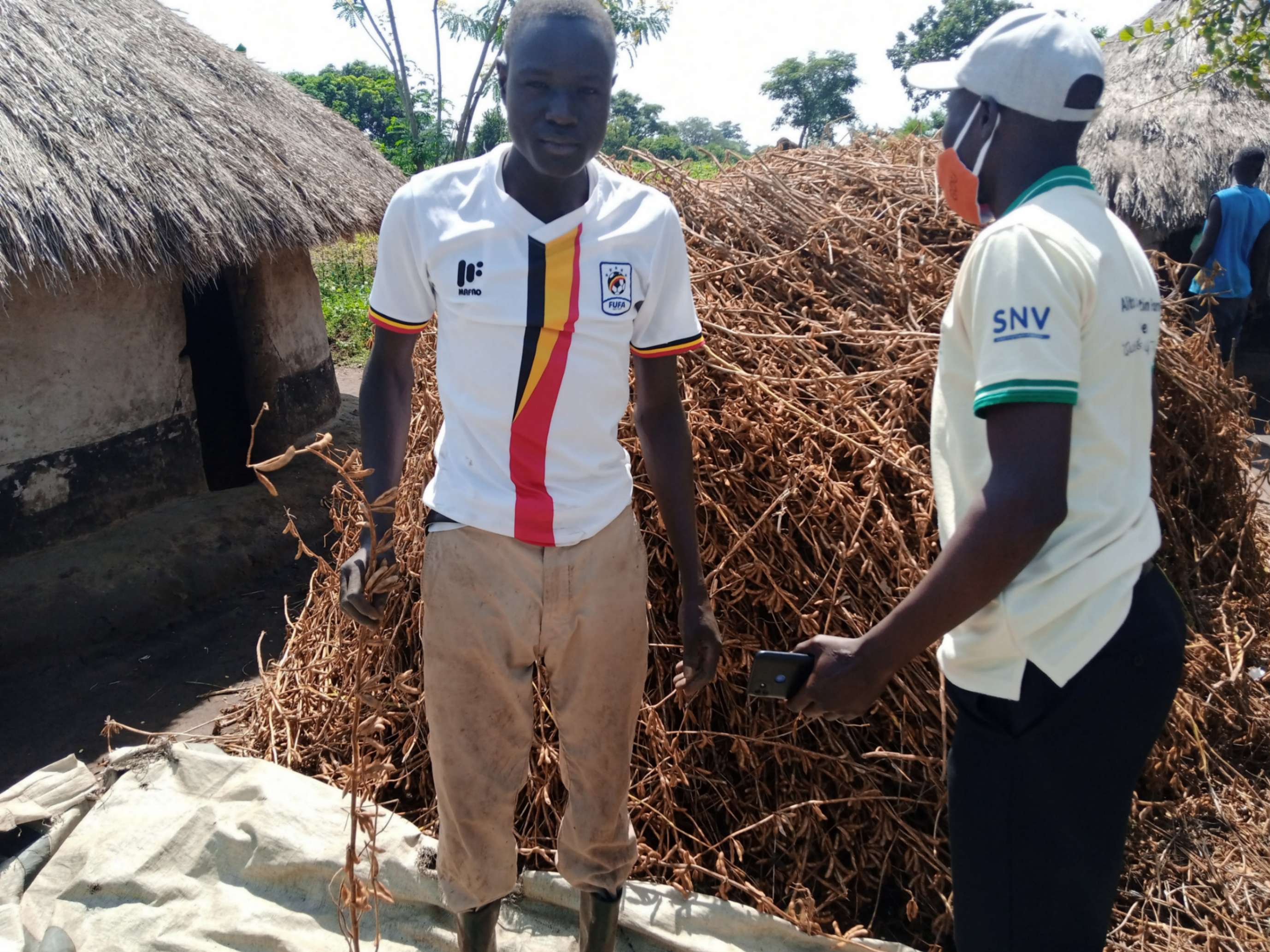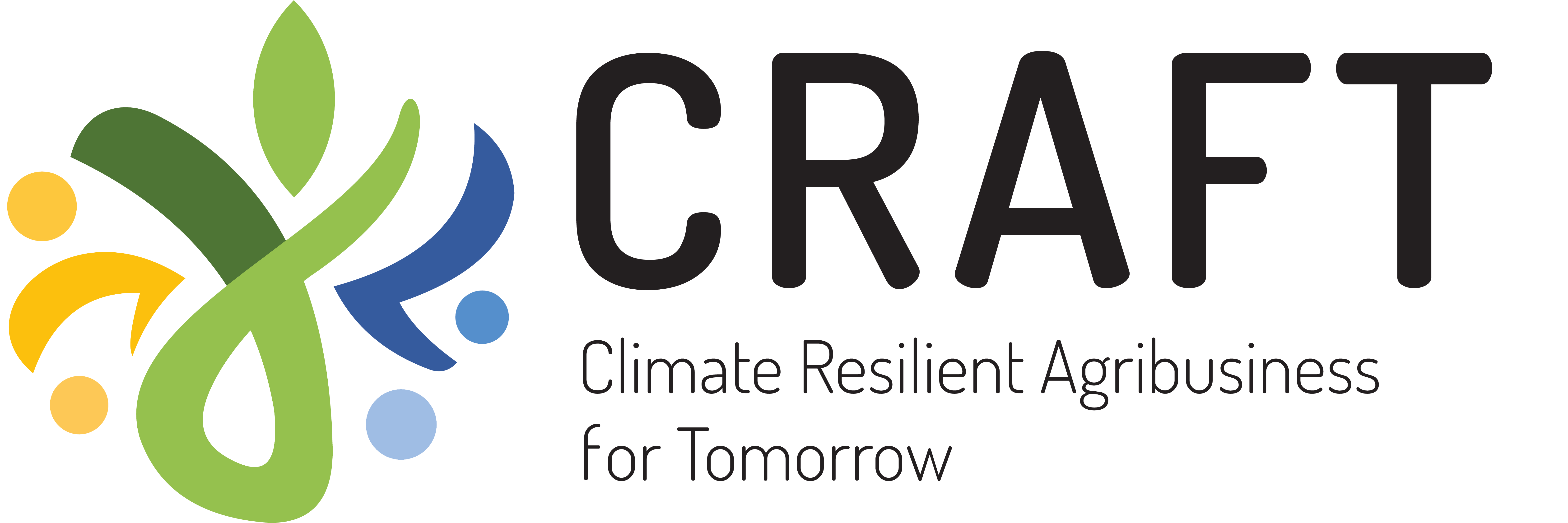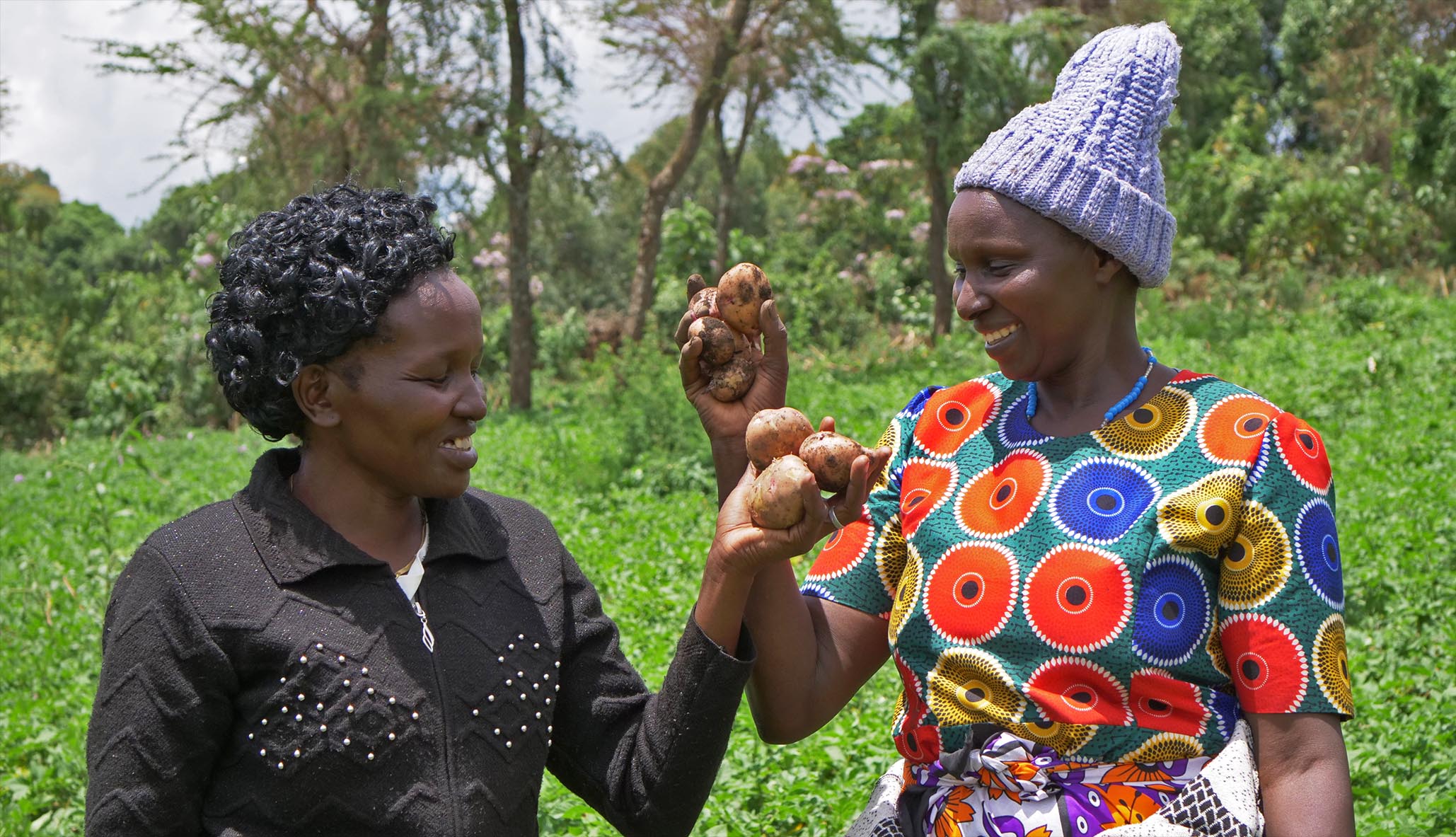Such are the realities of Kole - a beautiful rural district located in Northern Uganda. The lack of newly developed seed varieties on the local market, that are resilient to a changing climate and emerging diseases and pests usually results in less farm yields and incomes for most smallholders in this community.
The innovation
In bid to improve access to such much-needed farm inputs, the Climate Resilient Agribusiness for Tomorrow (CRAFT) project has since inception, invested in enhancing the adaptive capacities, strengthening the resilience, and reducing the vulnerability of smallholder farmers and agribusinesses to evidenced climate risks in East Africa.
CRAFT works with and through the private sector and supports public sector partners in creating an enabling environment based on field evidence for wide-scale adoption of Climate Smart Agriculture (CSA) practices at all stages of the agriculture value chain.
CRAFT interventions are embedded in inclusive and climate responsive investments (business cases) to strengthen business performances of agribusiness and cooperatives across seven value chains in Uganda, Kenya, and Tanzania, notably: green grams, potato, beans, sesame, sunflower, soybean and sorghum.
The implementation strategy is based on complementary interventions at three levels: (a) farming systems, (b) inclusive value chains, and (c) the enabling environment.
The Impact
The above innovative approaches have sustainably increased the agricultural productivity and incomes, as well as built the resilience of smallholder farmers and agribusinesses to climate change across the board.
One such farmers is 23-year-old Daniel Opio, who has turned around his farm performance by embracing climate change mitigation and adaptation practices promoted under the CRAFT project.
A soybean farmer from Alito Subcounty Kole district, Daniel belongs to the Alito Joint Farmers Multi-Purpose Cooperative Society Limited (ALITO); an agribusiness supported by CRAFT that seeks to enhance the capacity of 5,500 smallholder farmers in Lango Sub Region to improve soybean output by 15% through climate-smart agronomy, linkages to input suppliers, and mechanized farming by 2022.

Daniel experienced first-hand the consequences of planting poor seeds and losing money as a result.
‘For 2 years, I severely bought and planted bad seeds that made me lose over 90% of the expected yield every season on my 1 acre of soybean field.’
Following this frustration, Daniel enrolled to Alito to partake on the benefits that come with subscription, including access to improved soybean seeds, free training sessions on CSA practices, weather information and most importantly, availability of ready market after harvest, under the collective market approach.
From the same number of seeds planted in the previous season, Daniel was able to harvest 800 kilogrammes more; compared to when he used drought susceptible varieties. The additional soybean translates to about €487, giving Daniel a buffer for income as well as food security.
‘By participating in CRAFT facilitated activities, I have learnt that there are 3 major things that contribute to increased production and productivity for smallholder farmers– the quality of the seeds, inputs and agricultural practises integrated,’ Daniel shares.
Despite the above achievements, some challenges still a bid for Daniel and other farmers in Kole.
“Use of the hand hoe is labour and time consuming, and limits cultivation on an extended piece of land. I therefore intend to use part of my profits to a buy a pair of oxen and a plough. This will ease my farm work and enable me expand my garden.”
Daniel’s success story is a representation of many other Ugandan smallholder farmers whose livelihoods have been transformed by CRAFT.
Contributors: Sandra Nassali, Sarah Mazirwe & Peter Atine - SNV Uganda









